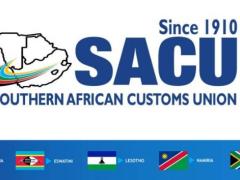The appeal from freight forwarders for a galvanised approach to the dilemma of demurrage and detention (D&D) penalties charged by shipping lines appears to be gaining traction in the United States where the US Federal Maritime Commission (FMC) launched an inquiry into carrier billing on Wednesday.
At the heart of the inquiry is an earlier instruction by the FMC in May that carriers should be billing “beneficial cargo owners” (BCOs) and not freight forwarders for late retrieval of cargo and delayed return of containers. (A BCO is defined as an importer who takes control of a shipment at the destination using his own logistics assets instead of utilising a third-party source like a freight forwarder or NVOCC.)
Part of the FMC’s investigative focus is also exploring what the term “merchant” in contracts between BCOs and carriers really means.
Does it, for example, give carriers the right to ring-fence direct and 3rd party cargo agents all under the same term, with subsequent penalty costs charged to forwarders and associate logistics providers?
Since urging carriers to reconsider who is responsible for demurrage and detention, BCOs or their land-side cargo agents, forwarders have complained that the FMC’s instruction has fallen on deaf ears.
More alarming, carriers are accused of threatening forwarders with rejecting cargo unless disputed invoices are settled – a direct contravention of global maritime law according to Mike Walwyn, consultant for the South African Association of Freight Forwarders (Saaff).
Back in the US, the FMC has set a November 6 deadline for submissions on the matter.
Spurred on by renewed efforts abroad to hold carriers to account about D&D billing, freight forwarders in South Africa have asked that similar probing be launched locally (see report yesterday).













